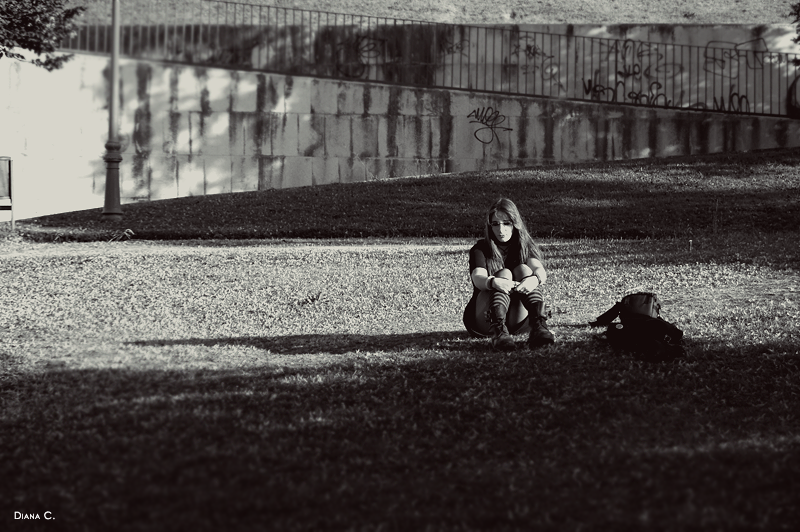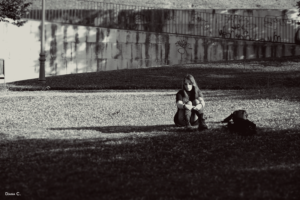Chronic illness and violence against women are topics that should go hand in hand.
For one thing, women experience chronic illness at much higher rates than men. While there are many factors that may be contributing to this disparity, studies have shown that many of these illnesses directly result from violence at an early age. Studies have shown that early childhood trauma, such as domestic violence and sexual abuse, can have huge ramifications in a person’s physical health down the line. According to the Adverse Childhood Experiences Study, published in 1998 and led by Vincent Felitti, children who experience abuse or household dysfunction are at a greater risk for health problems and chronic illness, including seven of the leading causes of death.
With the incredible rates of violence that girls and young women face, largely perpetrated by men, this creates real health problems that particularly impact women later in life. It’s not just the immediate pain and suffering that this violence creates, it’s also a lifetime of battling health problems, mental health issues, and stigma.
Despite their prolific rates of illness, women experiencing pain are not taken as seriously as men. They wait longer in ER waiting rooms. They are more likely to be given sedatives instead of pain medication. They are often misdiagnosed because doctors underestimate their symptoms and attribute them to hysteria, exaggeration, or anxiety. Black women in particular are frequently accused of drug-seeking and denied basic medical care.
Alexandra Moffett-Bateau wrote an article for Rewire about her experiences trying to get treatment for her lupus. She writes, “When the patient is young, Black, and feminine-of-center, her assumed lack of believability is compounded by the intersection of her identities. Many of the doctors I have encountered, after I moved to the South, were more willing to believe that I was a drug addict than a PhD candidate.”
This tendency of doctors to disbelieve women has incredible repercussions in women’s lives.
Joe Fassler wrote an article for The Atlantic about his wife’s experiences in the ER. Her doctor ignored her pain, misdiagnosed her, and put her life at risk. Fassler writers, “Rachel’s physical scars are healing, and she can go on the long runs she loves, but she’s still grappling with the psychic toll—what she calls ‘the trauma of not being seen.’ She has nightmares, some nights. I wake her up when her limbs start twitching.”
These kinds of stories are all too common.
I have a chronic illness that you can’t see. My diagnosis has a connotation of being something easily dismissed, something very common that people often live through with minimal disturbances. But my history with anxiety and depression has impacted my health to the extent that what may be simple and easily handled for some, is an incredible burden on my life. My mind and body work together to create periods of unwellness that keep me from living a happy, fulfilling life.
In addition to the physical and mental pain that I’ve been through when dealing with this illness, I have experienced a litany of disbelief, judgment, and misunderstanding. I have been told that my symptoms are insignificant and can easily be ignored, even as they’re leaving me unable to leave my apartment. When I have to cancel plans because of a flare up, I’ve been told that I’m just making excuses for myself. People who love me and mean well have told me my concerns about my health are too limiting, as if I have the power to change that. I am constantly frustrated that I can’t transfer my pain into someone else’s body so they can feel what I feel, because their judgments often hurt more than the symptoms.
While I am lucky enough to never have been hospitalized for my health problems, I do identify with Fassler’s wife’s “trauma of not being seen.” I, too, have nightmares about not being listened to.
This kind of trauma is often ignored, but to me it’s one of the most basic experiences of sexism and violence. I have begun to see my own recovery as a form of activism, because if I can share my pain with others then we can begin to see a way forward. Understanding the way women’s health issues intertwine with our conversations on women’s health, domestic violence, sexual assault, and accessibility is essential to feminist activism. We have to start by allowing women with chronic illness the space to speak up about their experiences, and ensure that our activism practices are accessible to people with health problems and disabilities. These perspectives will give us a broader sense of the struggle that women go through just to be seen.


There are no comments
Add yours